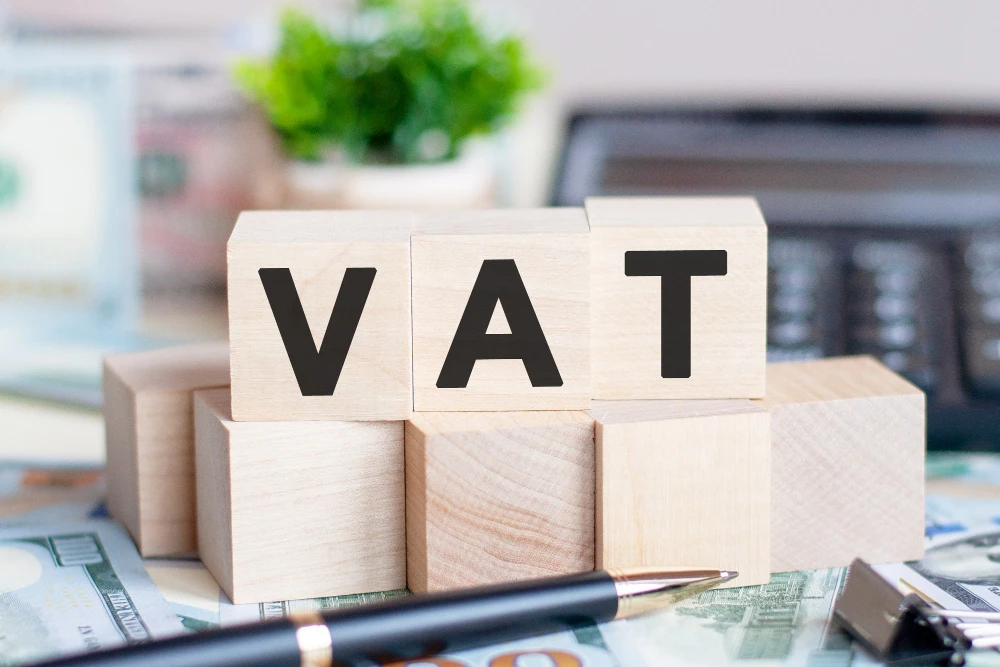The UAE’s introduction of Value Added Tax (VAT) in 2018 was a significant step in diversifying the country’s revenue sources. As part of the government’s economic transformation plan, VAT is designed to contribute to the nation’s long-term fiscal sustainability. For businesses operating in the UAE, understanding VAT is crucial for compliance and financial management. In this blog, we’ll explore the basics of VAT, its impact on businesses, and how you can ensure smooth VAT compliance.
What is VAT?
VAT is a consumption tax that is applied to the value added at each stage of the production and distribution process. In simpler terms, VAT is charged on the sale of goods and services at each stage of the supply chain, from the manufacturer to the final consumer. Businesses collect VAT from their customers and pass it on to the government.
In the UAE, the standard VAT rate is 5%. This means that for most goods and services, businesses are required to charge their customers an additional 5% VAT on top of the sale price. However, there are exceptions, such as certain goods and services that are either exempt from VAT or subject to a 0% rate.
Key Features of VAT in the UAE
- Standard VAT Rate:
- The standard rate of VAT in the UAE is 5%, which applies to most goods and services. Businesses must charge VAT on taxable supplies and remit it to the Federal Tax Authority (FTA).
- Exemptions and Zero-Rating:
- Some goods and services are either exempt from VAT or subject to a 0% VAT rate. Exempt services include financial services, healthcare, and education. Zero-rated supplies include international transportation, exports, and certain real estate transactions. Understanding these distinctions is key to ensuring compliance and minimizing VAT costs for your business.
- VAT Registration:
- If your business’s taxable supplies and imports exceed AED 375,000 per year, you are required to register for VAT with the Federal Tax Authority (FTA). Businesses with taxable supplies between AED 187,500 and AED 375,000 have the option to register voluntarily.
- Input VAT and Output VAT:
- Businesses pay VAT on the goods and services they purchase (input VAT) and charge VAT on the goods and services they sell (output VAT). The difference between the output VAT and input VAT is paid to the FTA. If the input VAT exceeds output VAT, businesses can claim a refund.
- VAT Returns and Filing:
- Businesses must file VAT returns quarterly or annually, depending on their turnover. The VAT return includes details of all taxable sales, purchases, and the amount of VAT collected and paid. Returns must be filed with the FTA by the due date to avoid penalties.
- Record-Keeping:
- Proper documentation and record-keeping are essential for VAT compliance. Businesses are required to maintain records of all VAT transactions for at least five years. This includes invoices, receipts, and contracts.
How VAT Affects Businesses
- Impact on Cash Flow:
- VAT can have a significant impact on your business’s cash flow. While VAT is refundable, businesses must still pay VAT on their purchases upfront and wait to recover it through VAT returns. It’s important to factor this into your cash flow management strategies.
- Increased Compliance Requirements:
- With VAT comes increased administrative duties. Businesses must ensure that their accounting systems are set up to accurately track VAT, produce VAT-compliant invoices, and submit VAT returns on time. This may require additional resources or investment in software systems to streamline VAT processes.
- Impact on Pricing:
- VAT affects the final price of goods and services, as businesses must pass on the tax burden to their customers. Understanding how VAT impacts pricing is essential, especially when doing business in competitive markets where price sensitivity is high.
- Supply Chain Considerations:
- Since VAT is levied at each stage of the supply chain, businesses should be aware of how their suppliers and customers are handling VAT. If your suppliers are not VAT-registered or if they fail to issue VAT-compliant invoices, you may not be able to claim back VAT on your purchases.
How to Ensure VAT Compliance
- Register for VAT on Time:
- Make sure to register for VAT as soon as your taxable supplies exceed the mandatory threshold. Voluntary registration is also an option for smaller businesses that want to claim VAT on purchases. The registration process can be completed through the FTA’s online portal.
- Keep Accurate Records:
- It’s essential to maintain detailed and organized records of all VAT-related transactions, including invoices, receipts, and contracts. This will help during VAT return filing and in case of any future audits by the FTA.
- Charge VAT Correctly:
- Ensure that you apply the correct VAT rate on all your taxable sales. If a good or service is exempt or zero-rated, ensure you have the proper documentation to support your claims.
- File VAT Returns on Time:
- Timely VAT filing is critical to avoid penalties. The FTA requires businesses to file VAT returns periodically, and penalties may apply for late submissions or non-compliance. It’s essential to set reminders and keep track of submission deadlines.
- Seek Professional Advice:
- VAT can be complex, and staying compliant requires expert knowledge. Working with a tax consultant or accounting firm can help ensure that your business is meeting all the legal requirements, optimizing VAT recovery, and avoiding costly mistakes.
How Wisly Consulting Can Help
At Wisly Consulting, we understand that VAT can be a challenge, especially for businesses that are new to the tax system or dealing with complex transactions. Our team of experts is here to guide you through the intricacies of VAT, from registration and compliance to filing returns and optimizing your tax strategy. Whether you’re just starting or need assistance with ongoing VAT management, we provide tailored solutions to ensure your business remains compliant and efficient.
Stay Ahead of VAT Changes with Wisly Consulting
We are committed to providing businesses with the insights, advice, and tools needed to navigate VAT regulations effectively. Follow our blog for more tips, updates, and expert guidance on VAT and other essential business matters in the UAE.
Get in Touch
If you need help with VAT registration, compliance, or planning, Wisly Consulting is here to assist. Contact us today to schedule a consultation with one of our VAT experts!


